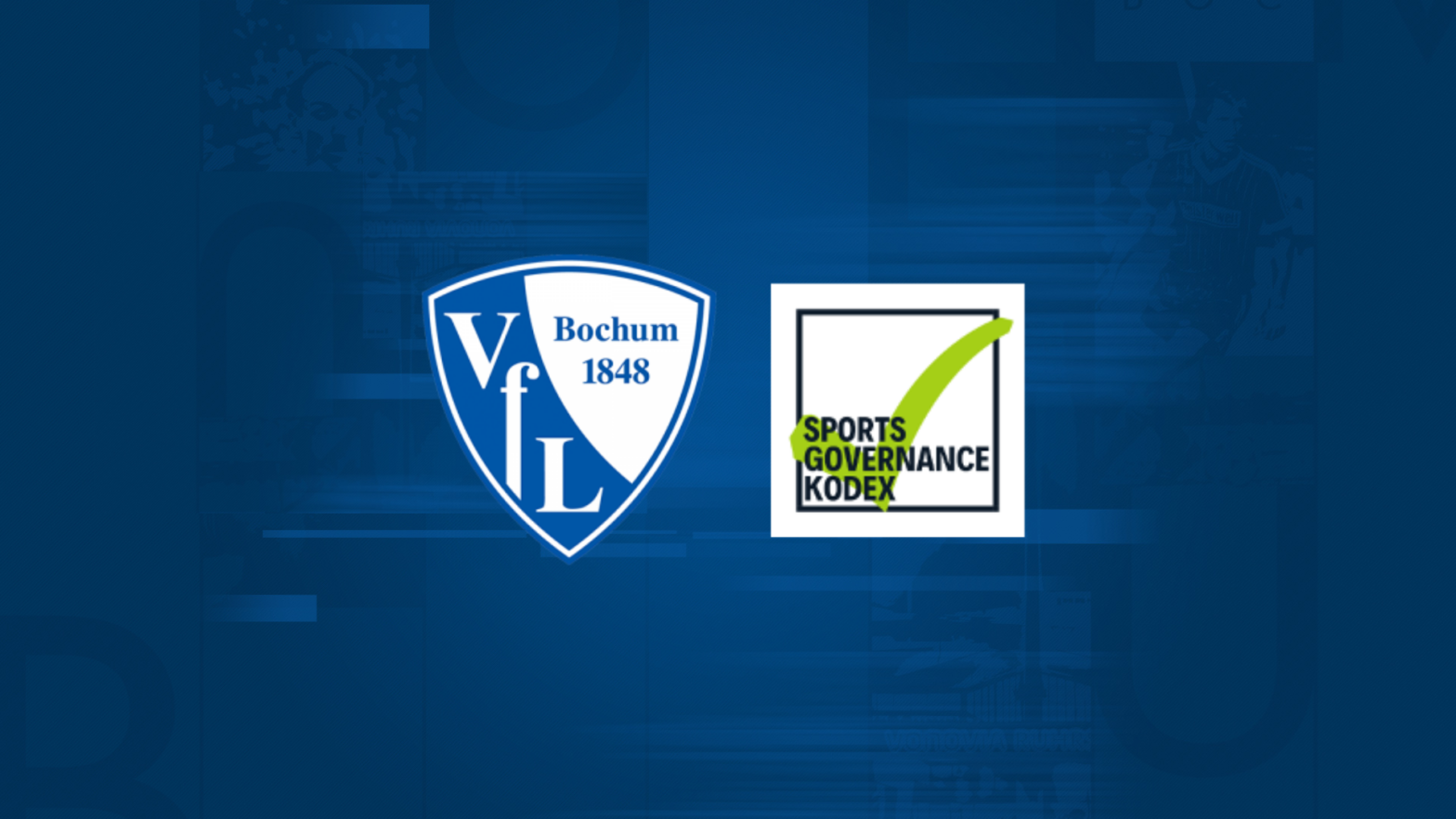The club, also a member of the FBIN Football Network, is the first sports organisation in Germany to issue a declaration of conformity with the Code.
VfL Bochum 1848 GmbH & Co. KGaA has issued a declaration of compliance with the Sports Governance Code. The club thus declares that it recognises the Code and ensures its application within its sports organisation. At the same time, it signals its willingness to remedy any remaining deficits. VfL Bochum 1848 is the first Bundesliga club and the first sports organisation in Germany to issue a declaration of conformity with the Code. The club already complies with all nine principles of the Code.
The Sports Governance Code is a voluntary, self-imposed set of rules for the good and sustainable governance of sports organisations. The Code was developed by the association Sports Governance e.V. together with a founding commission of 28 experts and published in June 2021. It defines a standard for good governance to which federations, leagues and clubs of all sports and all sizes, from elite to competitive to popular sport, can orient themselves. With its structure of principles, recommendations and suggestions, the Code helps to identify important governance aspects and to find a tailor-made solution for the respective sports organisation.
Dr. Alexander Juschus, Chairman of the Code Commission: “We are very pleased that VfL Bochum, a Bundesliga football club and thus one of the most visible brands in German sport, is the first organisation to commit to the Code. This will give the Code and our club’s cause a powerful boost.”
Ilja Kaenzig, spokesman of the management board of VfL Bochum 1848 GmbH & Co. KGaA and member of the FBIN Advisory Board: “For us, the Code is both a commitment and an incentive. A commitment that we take the issue of good leadership in sport very seriously at VfL Bochum and therefore respect the rules of the code. An incentive that we will work intensively on those areas where we still see potential for improvement.” Kaenzig also expressly welcomes the inclusion of sustainability as a new licensing criterion by the DFL from the 2023/24 season: “It is obvious to us that good management must also be an elementary component of sustainability.” VfL Bochum 1848 had advocated this position during the development of the new DFL criteria catalogue through its participation in the Sustainability Working Group and the Responsibility Working Group.
Specifically, the Sports Governance Code regulates, among other things, the interaction between the management body and the supervisory body as well as the handling of conflicts of interest that can jeopardise the so-called checks and balances. Furthermore, rules are established for finances, risk management and compliance, for a code of ethics and conduct within the organisation, for communication with the various stakeholders and their participation, for reporting to the members’ or shareholders’ meeting as well as for sustainable and socially responsible action by the sports organisation.


 Upgrade to Premium Now
Upgrade to Premium Now






